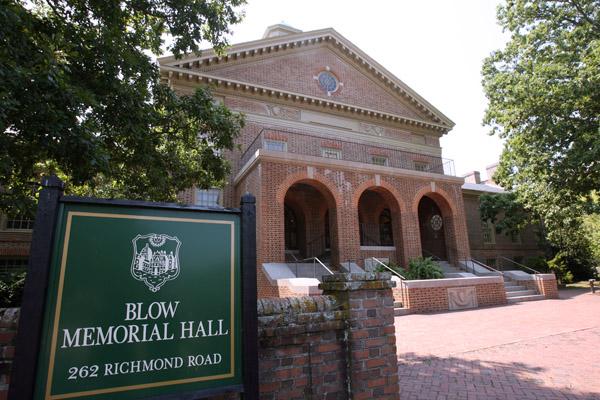College is hard.
I knew that, even coming from almost 2,000 miles away, there was a certain prestige associated with the College of William and Mary, an indefinable, incandescent quality that instilled within you a sense of pride, belonging and intimidation. To be accepted is thrilling. To be an actual member of the Tribe is to be glorious, to be celebrated, to be eminent. You are not here for simply a degree; you are here to leave a legacy that will shape future generations. You are here to make a mark on history. You are not here to fail.
Currently, the University of Michigan has established an embedded model approach to mental health that will broaden the scope and impact of their counseling resources by making them one thing the College’s are not: accessible.
Many struggle with the weight of these expectations. Every day I question whether or not I made the right decision to attend. And every day I watch as those around me piece their lives together, while I am left flailing, lost, wondering why it is taking me much longer to adjust. I find myself not wanting to admit that I might need help — and realizing if I did, it wouldn’t come readily or easily.
The College simply doesn’t have the resources to help everyone. We need more options.
Currently, the University of Michigan has established an embedded model approach to mental health that will broaden the scope and impact of their counseling resources by making them one thing the College’s are not: accessible.
By stationing specialized counselors in various academic fields, the university hopes to meet the increasing demand for mental health services demonstrated by students in recent years. The idea is to tailor each counselor’s focus to include the academic and social pressures of students pursuing a specific major. Not only are counselors intimately familiar with the college itself and its unique stresses, they have also personally worked with faculty members and students and been subjected to the same high-risk environments. The counselors are fully embedded within the community.
Naturally, we should take the first step. We should set the example, raise the standard, defy the stereotype and challenge the societal norm that it is unacceptable to ask for help.
And, for the University of Michigan, they have become an integral part of the community. Although it’s difficult to tell the results of the program, there has been a definite improvement in outreach to students, especially to those who would not have normally sought help, who could not get the attention they deserved and gave up trying.
The College leads. We were the first college to staff a complete faculty, the first to establish an intercollegiate fraternity, the first to institute an honor system. We were the first college to become a university and the first college to be conceived.
Naturally, we should take the first step. We should set the example, raise the standard, defy the stereotype and challenge the societal norm that it is unacceptable to ask for help.
So why haven’t we yet?
Because our resources are limited. And that needs to change.
Email Madison Hauser at mjhauser@email.wm.edu.


An excellent article. William and Mary’s rhetoric is one of leadership, of setting the standard rather than meeting it. Our student body reflects this, in our values and in our accomplishments, and yet when it comes to addressing some of the most sinister problems affecting campus culture nationwide, the College has been content in its mediocrity with the rest of its academic peers. We try (and fail) to downplay our terrible reputation for mental health when we should be embracing it, letting it fuel our drive to defy the norm and establish the cutting edge, leading others to a better future. U Michigan has had a similar reputation to ours, and when campus mental health finally receives the attention it deserves, it will be remembered as a leader, while we will simply be the followers we so urge our students not to be.